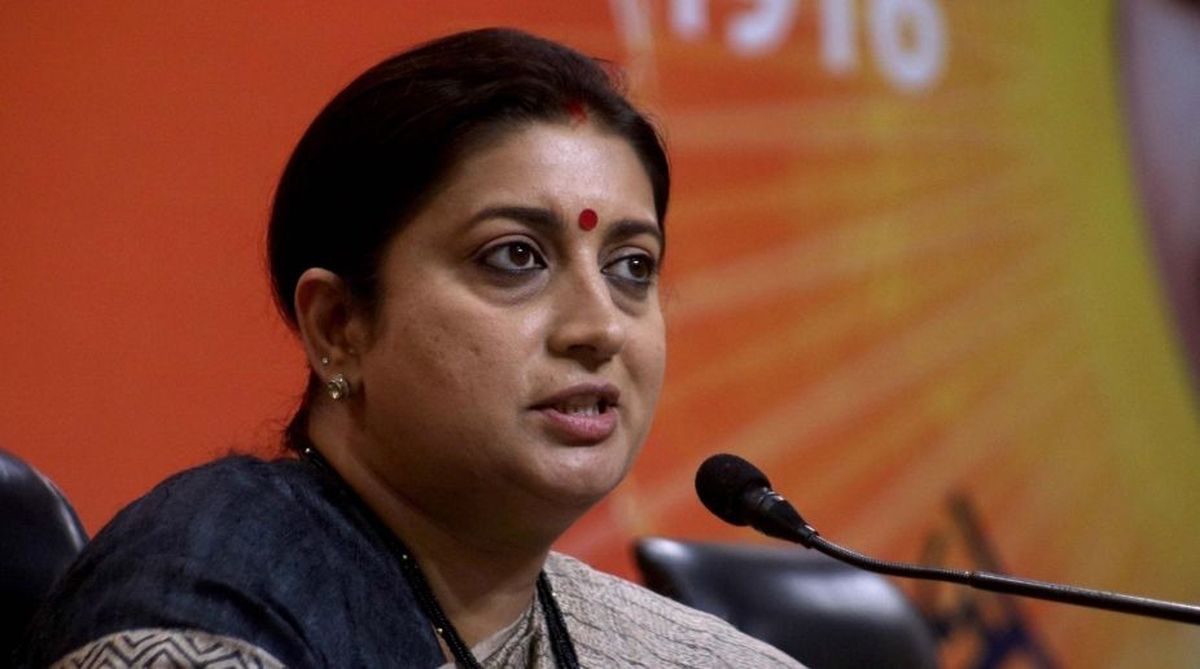The Bharatiya Janata Party (BJP) on Tuesday slammed the Congress a day after former Reserve Bank of India Governor Raghuram Rajan said that bad loans rose during the United Progressive Alliance (UPA) years.
“Non-performing assets went up because of the policies of the Congress party,” Union Minister for Textiles said at a press conference in New Delhi today.
Advertisement
“The Congress was exposed yesterday. Raghuram Rajan’s statement clearly proves that it is Congress who is responsible for increased NPA. Rahul Gandhi, Priyanka Vadra and Sonia Gandhi wanted to sabotage the taxpayer’s money,” said Irani referring to the former RBI Governor’s statement that a larger number of bad loans originated in the period 2006-2008 when economic growth was strong, and previous infrastructure projects such as power plants had been completed on time and within budget.
Irani also questioned Congress chief Rahul Gandhi on why Young India purchased a commercial company, referring to the National Herald case in which the Delhi High Court on Monday delivered a setback to the Congress president and his mother by dismissing their plea challenging the Income Tax notice seeking tax reassessment for the financial year 2011-2012.
“Why is it that Mr. Rahul Gandhi who is too quick to hug Prime Minister, would run a mile away when it comes to an Income Tax officer?” asked Irani.
She also accused UPA chairperson Sonia Gandhi of “leading a government that attacked the very core of the Indian banking system”.
In a note to Chairman of Estimates Committee Murli Manohar Joshi, Raghuram Rajan said: “A variety of governance problems such as the suspect allocation of coal mines coupled with the fear of investigation slowed down government decision making in Delhi, both in the UPA and the subsequent NDA governments”.
In his note to a Parliamentary panel, Rajan accused over optimistic bankers, slowdown in the government’s decision making process and moderation in economic growth as the major contributors to mounting bad loans.
Stating that the economy in the period 2006-2008 was strong, Rajan said that “banks make mistakes” at such times.
“They extrapolate past growth and performance to the future. So they are willing to accept higher leverage in projects, and less promoter equity. Sometimes bank sign up to lend based on project reports by the promoter’s investment bank, without doing their own due diligence,” according to Rajan.
Citing an example, the former RBI governor said, “One promoter told me about how he was pursued by banks waving chequebooks, asking him to name the amount he wanted”. This was a historic phenomenon of irrational exuberance, common across countries at such a phase in the cycle, he added.
Unfortunately, he said, growth does not always take place as expected and years of strong growth before the global financial crisis was followed by a slowdown, which extended even to India, showing how much more integrated the country had become with the world. Strong demand projections for various projects were shown to be increasingly unrealistic as domestic demand slowed down, he added.
He also pointed to loss of promoter and banker interest for rise in non-performing assets (NPAs). Over malfeasance and corruption in the NPA problem, he said, “Undoubtedly, there was some, but it was hard to tell banker exuberance, incompetence, and corruption apart”.
The Parliament’s Committee on Estimates had invited Rajan to brief it on the matter after former Chief Economic Advisor (CEA) Arvind Subramanian praised him for identifying the NPA crisis and trying to resolve it.
Rajan, who was RBI governor for three years till September 2016, is currently the Katherine Dusak Miller Distinguished Service Professor of Finance at Chicago Booth School of Business.
(With inputs from agencies.)











